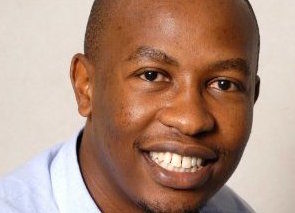Even if that means hiring much younger candidates who can be groomed into leaders
“I'm a development guy. I'm not a quick-fix guy. I like to build things that will outlive me and the only way to do that is by sorting out the ecosystem. If you make sure the entire ecosystem of an organisational workforce is strong and diversified, things like transformation, for example, will happen automatically because there will be plenty of black talent, female talent… and appointing a certain profile of candidate to a position will no longer be a problem for HR leaders. Currently, the problem is that there simply aren't enough people who suit the certain demographics and companies shouldn’t be hiring people that are not adequately prepared for roles that sometimes require very specific experience,” says Tswelo Kodisang, CHRO at fast-moving-consumer-goods company Tiger Brands.
Tswelo has an interesting approach to the HR profession saying that leaders have to take a dynamic approach to advancing the role of HR. For him, that means getting different kinds of people to enter and progress within the field. When like-minded people at senior level talk about the state of the function and where HR is going, the topic is still centred around making sure HR has a seat at the executive table. Tswelo says that, in order to do that, those same leaders have to spend time exploring ways to make sure professionals in the field are needed at the table and that their presence within the c-suite is not simply a case of window dressing.
He believes that if the right people are given the opportunities and coached to succeed, then many of the other challenges faced by HR will sort themselves out. But how should one go about finding the right talent? The answer to that depends on the HR leader in question. In his view, it is much better to hire candidates based on their potential and mould them into the kinds of leaders that can solve real business problems. That is why he is so committed to training and development. It is exactly this kind of approach that was applied to him when he began his career at Unilever. He and three other graduates were earmarked as high-potential candidates and were subsequently groomed. Now each of them heads up the HR divisions at the companies where they work.
“That is why I don’t believe in throwing money at a recruitment problem. You can’t achieve transformation or to retain your talent by simply focusing on money. Because if you’re going to make money the sole motivator, that person will leave as soon as a better package comes along,” says Tswelo.
What to look for
On what types of candidates to look out for, Tswelo believes the profession needs new ideas and people from different academic backgrounds because that’s how to get people who can bring fresh thinking and perspective to the function and HR roles. One of his first recruits, for example, was a zoologist. He employed her because he felt she would understand the systems that need to be put in place and bring systems and analytical thinking. Another recruit was someone who had just completed an MBA but had never worked in people management before.
Says Tswelo: “I don't usually like tests because I am not sure can accurately predict someone's performance and impact. That’s why I'm not a strong believer in psychometric tests. Some people might think they add value but I don't. I would much rather look at a person’s track record and take calculated risks. The most important characteristics that I look out for are 'attitude' and 'mindset'. I look for people who want to grow and are willing to put in the hours when they’re needed. For me, it’s about finding people who want to drive continuous improvement.
[chro-cta slug=mondel-z-international-s-cebile-xulu-at-hr-indaba-2020-on-14-15-october-2020]
“I also don't like people that jump around. I found somebody on my team here who got their role because they had moved around a lot and was promoted into a senior role without having shown competence at that level. They also had a lousy attitude. That’s why I prefer to look at a person’s work history. Because, if I see that you joined and that you progressed within that particular organisation, it shows what kind of person you are.”
It’s better if they’re not looking
Tswelo doesn’t like candidates that are actively looking for a job. That is because, when somebody is already looking for a change, every engagement they have with a potential employer is about making a good impression. If someone is happy where they are, the engagement tends to be more honest.
“I can name a number of senior persons, whether it’s a CFO or marketing head, across the FMCG industry. I can tell you I know that because we have mapped them and we will often engage with them on the basis of achieving the company’s strategic vision and ambition.”
When he does find a potential candidate, he never engages with them around just their technical competence because that person wouldn’t have a position as the head of whatever division if they were not technically competent. Rather, he prefers to discuss the person’s ideas around the future of whatever role they’re hiring for.
“At Tiger, we are looking for change agents so I'll talk about what I want to see changed in the organisation and thereafter question the person on how they think we can achieve that. We are looking for leaders that are able to draft change strategies, who must also be resilient enough to persevere even when there is resistance to change. “












